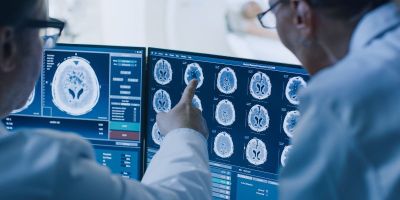New research reveals progress in Neurodegenerative disease approaches

Survey highlights the benefit of physical and mathematical sciences, new platforms and AI modelling techniques to improve understanding of neurodegenerative diseases of the brain.
Neurodegenerative diseases are conditions that lead to progressive injury of nerve cells, predominantly in the brain, and include Alzheimer's disease (AD), Parkinson's disease, and Huntington's disease.
Published in the Royal Society journal, Interface, ‘Neurodegenerative disease of the brain: a survey of interdisciplinary approaches’ describes some of the progress being made in understanding neurodegenerative diseases of the brain by drawing on insights from disciplines beyond medicine and biology, with techniques drawn from physics, mathematics, artificial intelligence, chemistry and psychology proving particularly productive.
Professor Stephen Smye, a co-author of the paper said, “Neurodegenerative diseases of the brain pose a major and increasing global health challenge, with only limited progress made in developing effective therapies over the last decade.”
These novel approaches from other disciplines will make important contributions to understanding the many outstanding challenges in neurodegenerative diseases of the brain.
There are 850 000 people in the UK living with dementia, at a cost of over £26 billion per year. This is predicted to double by 2040.
Prof Smye explained, “These novel approaches from other disciplines will make important contributions to understanding the many outstanding challenges in neurodegenerative diseases of the brain.”
Professor Smye hopes the work will capture the attention and interest of researchers working in basic science who have not considered the possibility of applying some of their approaches to some of medicine’s Grand Challenges.
The project was funded by Rosetrees Trust and UKRI Physics of Life network.
Photo by Hal Gatewood on Unsplash




